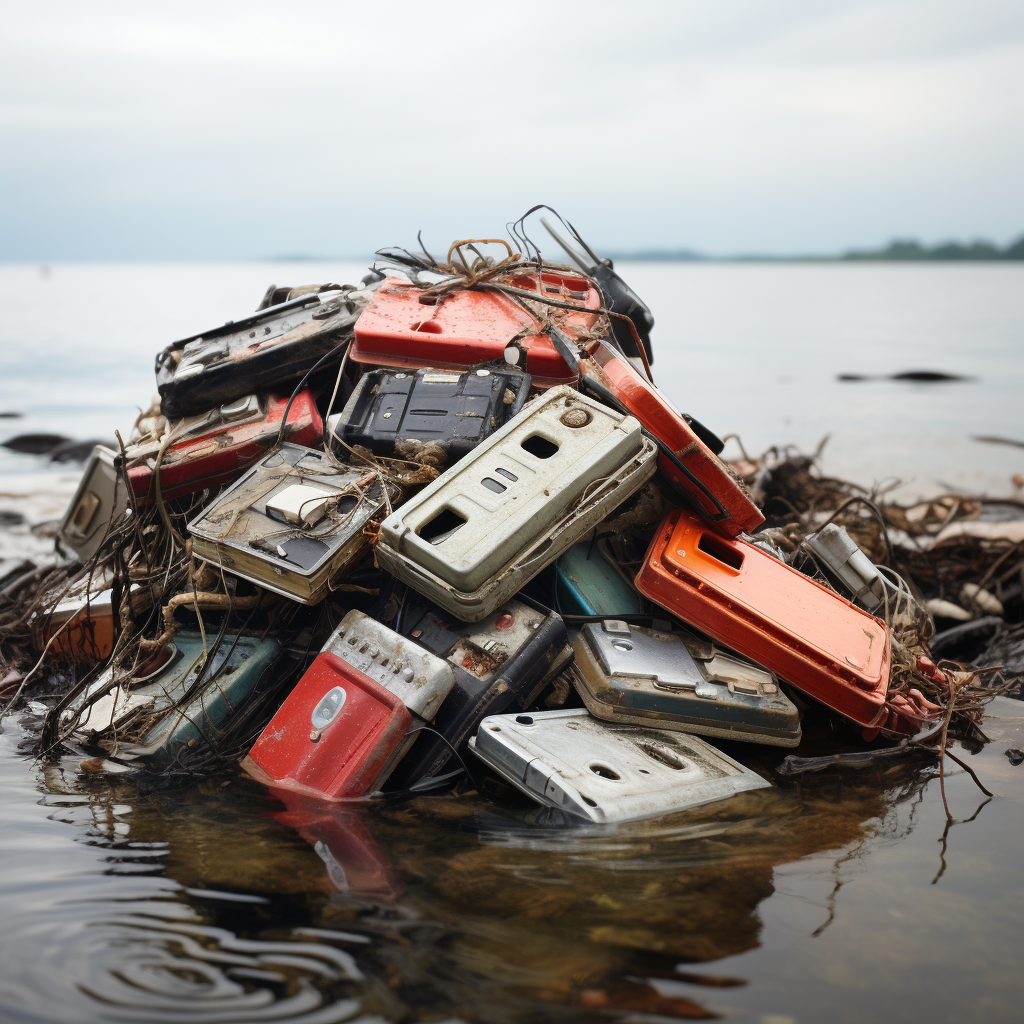As the chill of November descends and leaves start falling from the trees, the American population braces for one of the most anticipated shopping events of the year: Black Friday. Originating in the United States, Black Friday has now become a global phenomenon, marking the beginning of the holiday shopping season. A day filled with unbeatable discounts and irresistible deals, it’s a shopping extravaganza that consumers eagerly look forward to.
However, beneath the surface of these alluring discounts and the rush of the shopping frenzy, a more sinister side of Black Friday lurks. With every electronic device purchased, a potential environmental hazard is created – the used battery. Each year, millions of products powered by batteries, from smartphones and laptops to toys and gadgets, are sold on Black Friday. And, each of these products contributes to the growing problem of battery disposal, a problem often overlooked in the excitement of snagging a great deal.
Contents
- 1 The Tradition of Black Friday: A Brief History
- 2 Understanding the Battery Market
- 3 The Battery Life Cycle: From Production to Disposal
- 4 The Environmental Impact of Used Batteries
- 5 Black Friday and the Surge in Battery Consumption
- 6 The Dark Side of Black Friday: An Unsustainable Trend?
- 7 Solutions and Alternatives: Responsible Battery Consumption and Disposal
- 8 Conclusion
The Tradition of Black Friday: A Brief History
Black Friday, as we know it today, has its roots in the mid-20th century United States. The term ‘Black Friday’ was first used in the 1960s to mark the kickoff to the Christmas shopping season. ‘Black’ refers to stores moving from the ‘red’ to the ‘black,’ back when accounting records were kept by hand, and red ink indicated a loss, and black, a profit.
Over the years, Black Friday has evolved into a massive shopping event, with retailers across the globe offering deep discounts and promotions. In 2019, American consumers spent a record-breaking $7.4 billion online alone on Black Friday, with millions more spent in traditional brick-and-mortar stores.
This annual shopping spectacle has not only become a tradition but also a critical event that significantly impacts the retail industry and, as we’ll see in the following chapters, the environment.
Understanding the Battery Market
Batteries power our world. From the smartphone in your pocket to the remote control for your television, batteries are an essential part of modern life. The global battery market was valued at $108 billion in 2019 and is expected to reach $152 billion by 2025, growing at a compound annual growth rate (CAGR) of 6.1% during the forecast period (2020-2025).
The market is driven by a variety of factors, including the increasing demand for electric vehicles, advances in portable electronics, and the growing need for uninterrupted power supply (UPS) systems. But, with this growth comes responsibility, particularly when it comes to the disposal of used batteries.

The Battery Life Cycle: From Production to Disposal
Batteries go through a complex life cycle, from raw material extraction to production, use, and finally, disposal. Each stage has a significant environmental impact.
The production phase involves the extraction of raw materials, such as lithium, nickel, and cobalt, which are often mined in environmentally damaging ways. Then, these materials are manufactured into batteries, a process that consumes considerable energy and produces greenhouse gas emissions.
The use phase involves the consumption of the battery’s stored energy to power devices. Once expended, the battery enters its final stage, disposal. If not properly disposed of, batteries can leak harmful chemicals into the environment, causing soil and water pollution.
The Environmental Impact of Used Batteries
The environmental consequences of improper battery disposal are significant. Batteries contain a variety of heavy metals and toxic chemicals. When these end up in a landfill, they can leach into the soil and groundwater, causing environmental pollution. For instance, lead-acid batteries contain lead that can contaminate the environment, and Li-Ion batteries contain lithium, which can cause fires if not properly handled.
According to the Environmental Protection Agency (EPA), Americans throw away more than 3 billion batteries—about 180,000 tons—every year. More than 86,000 tons of these are single-use alkaline batteries. These figures are staggering and highlight the severity of the battery disposal problem.
Even recycling, while a much more environmentally-friendly option than landfilling, comes with its own challenges. Battery recycling is a complex, energy-intensive process that requires specific recycling facilities. While battery recycling rates are improving, there’s still a long way to go.
Black Friday and the Surge in Battery Consumption
Black Friday significantly contributes to the surge in battery consumption. Millions of battery-powered devices are sold on this day, leading to an increase in demand for batteries and, subsequently, a rise in battery waste. Recent estimates suggest that the number of batteries sold on Black Friday could be up to 20% higher than on an average day, highlighting the scale of the problem.
Given that many consumers replace their electronic devices annually or bi-annually, often driven by events like Black Friday, the number of used batteries can quickly accumulate. This creates a significant environmental challenge, as most of these batteries end up in landfills rather than being properly recycled.
The Dark Side of Black Friday: An Unsustainable Trend?
The correlation between Black Friday and increased battery consumption and waste is clear. This leads us to question the sustainability of such a trend. While consumers enjoy the benefits of discounted products, the environmental cost cannot be overlooked. The cycle of buying new devices, discarding the old ones, and the associated battery waste contributes to environmental pollution and resource depletion.
As we face the growing impacts of climate change, it is crucial to reconsider our consumption habits and their environmental consequences. As the next chapter will discuss, there are ways to mitigate this issue.
Solutions and Alternatives: Responsible Battery Consumption and Disposal
Addressing the battery waste issue requires a multi-faceted approach, involving not only consumers but also manufacturers and policymakers.
1. Consumer Awareness and Action: As consumers, we can be mindful of our consumption habits. Opting for devices with longer life spans or replaceable batteries can reduce overall battery waste. Proper disposal of used batteries is also key. Many communities offer battery recycling programs, and several retailers provide bins for used batteries.
2. Manufacturer Responsibility: Manufacturers can play a significant role by designing products with longer life spans, replaceable batteries, and using recycled or more environmentally friendly materials. Some companies have already begun to take steps in this direction. For instance, Apple’s iPhone 12 line uses 100% recycled rare earth elements in all magnets, including those in the Taptic Engine.
3. Policy and Regulations: Government policies and regulations can encourage better practices. For instance, the European Union has proposed the “Right to Repair” regulations, which would require manufacturers to make products easier to repair, thereby extending their life span and reducing waste.
4. Technological Innovations: Technological advancements can also help mitigate battery waste. For instance, innovations in battery technologies could lead to safer, more energy-dense batteries with longer life spans.
Conclusion
Black Friday, a day marked by shopping sprees and unbeatable deals, has a darker side to it: the environmental impact of the subsequent surge in battery consumption and disposal. As we’ve seen throughout this article, the widespread use and improper disposal of batteries pose significant environmental challenges.
However, all hope is not lost. With increased consumer awareness, responsible manufacturing practices, supportive policies, and technological advancements, we can mitigate these challenges. As we move towards a more sustainable future, it’s crucial that we consider not just the price we pay at the checkout counter, but also the hidden environmental cost of our purchases. This Black Friday, let’s strive to be more conscious consumers, for the sake of our planet.










